|
Our Lord who earnestly wanted to eat the final Passover before His suffering
|
|
|
글쓴이 :
관리자
|
|
Luke 22:14-23
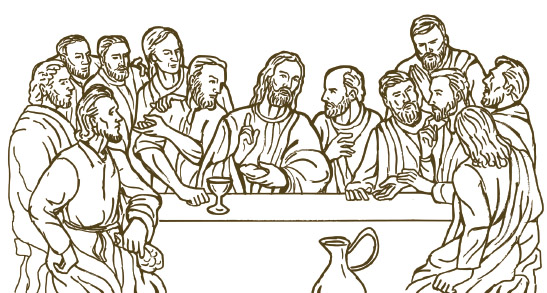
Did Jesus eat the last Passover meal before the crucifixion?
The night before Jesus was crucified, He had the last supper with His disciples. He said to them, “I have earnestly desired to eat this Passover with you before I suffer” (Luke 22:15). If you look at the phrase “earnestly desired” in the original scripture, it indicates a very strong desire. He meant, “I must eat it, and not Myself alone, but with you!” It is truly a very earnest aspiration. According to the common translation, it is rendered, “I truly and earnestly want to eat it.” Dear saints, did Jesus eat the Passover meal or not? Even those who boast that their families have been Christians for multiple generations do not have a clear cut answer to this question.
From Genesis to Revelation, the entire Bible testifies God’s earnest love and desire to save all mankind.
We call this history of redemption. The center of the history of redemption is Jesus Christ, and the center of the life of Jesus is the Passion Week, during which He was crucified. And the center the Passion Week is Friday, the very day when He was crucified. He was hung on the cross at 9 AM and passed away at 3 PM on that day. He spoke three utterances from 9 AM to noon while the sun was bright, and from noon the sun lost its light and it became pitch dark suddenly (Matt 27:45, Mark 15:33, Luke 23:44).
Three hours later, just before it turned to 3 PM, Jesus spoke four utterances. So in total, He spoke seven utterances in seven hours on the cross. When God created the universe over six days, He said seven times that He saw that it was good (Gen 1:4, 10, 12, 18, 21, 25, 31). This is a mysterious correspondence.
Jesus’ six hours on the cross is the encapsulation of His entire life. It can be compared to pressing seeds very hard to extract the last drop of oil out of them. Jesus pressed out His heart, soul and body hard like pressing for oil for the sin of mankind to save us. The six hours on the cross signifies the completion of the redemption of mankind. It is the cross which forgave all of our sins including the original sin that Adam committed, ancestral sins, and self-committed sins, all at once. When we think about such grace, we can’t be but struck with awe.
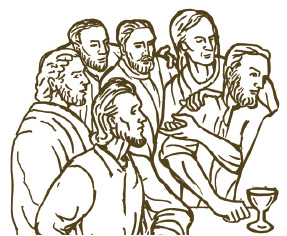
Disciples did not prepare the Passover meal
In this crucial final week, Jesus said several times prior to the Passover, “I have earnestly desired to eat this Passover with you” (Luke 22:15). The disciples, however, did not prepare for the Passover.
Although all of the twelve disciples could see, they were spiritually blind. They were only interested in the things of flesh. There was even someone like Judas Iscariot who stole money. Jesus hoped that they would repent if He taught them Word. Yet they didn’t. If Jesus wanted to have the Passover so earnestly, the disciples should have prepared for it. Unleavened bread and a lamb are what they needed for the Passover meal. The twelve men could prepare them without much difficulty. Nevertheless, they didn’t despite of Jesus’ earnest requests over several occasions.
The word “Passover” means “to pass over something.” It originated from the event when the Israelites escaped from Egypt. While all the firstborns of Egypt were killed, the households of Israel whose doorposts were covered with the blood of lamb were safe. On this day, the Israelites ate lambs without defect and unleavened bread (bread without yeast) with bitter herbs. The lamb of the Passover symbolizes Jesus Christ (John 1:29). So the Passover is a feast to commemorate how mankind was unleashed from the power of death through the precious blood of Jesus Christ (Exod 12:1-12, 1 Cor 5:7, Rev 5:6). In the Israeli calendar, it is the fourteenth day of the first month (the month of Nisan).
When Jesus had the last supper with His disciples, it was Thursday evening, a day before He was crucified on the cross. It is recorded as the first day of the Feast of Unleavened Bread (the day to eat unleavened bread, Exod 12:15-20) and the day they slaughtered the Passover lamb (Mark 14:12, Luke 22:7, Matt 26:17). Leaven symbolizes sin. God ordered that there should be no leaven found in the houses(Exod 12:19). Leaven should not be anywhere inside or outside the house (1 Cor 5:6-8). After buying a lamb for the Passover, the Israelites needed to closely examine it over four days to see if it has any blemish or disease. If the lamb is without blemish, they were supposed to slaughter it between 3 to 6 PM on the day of Passover (Exod 12:1-6). And they ate it with unleavened bread and bitter herbs on the same night (Exod 12:8). The bitter herbs were a reminder for the Israelites of the suffering, hardships, and death they experienced in Egypt for 430 years.
God told them to celebrate the Passover throughout their generations as a permanent ordinance (Exod 12:14, 17, 24).
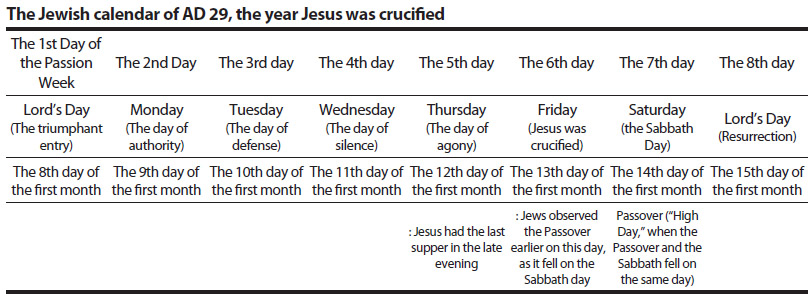
The place for Passover meal instructed by Jesus
Jesus instructed His disciples of the place to eat the Passover meal on the fifth day of the Passion Week, Thursday, the day of agony (Matt 26:17-19, Mark 14:12-16, Luke 22:7-13). He told them to go into the city, and a man would meet them carrying a pitcher of water. Jesus also told them to ask, "Where is Jesus’ room in which He may eat the Passover with His disciples?” In the Korean Bible, it says “a person.”
In original text (Greek), however, it is referred as a third party singular male. Usually, it is women who carry a pitcher of water. Yet here, Jesus said a man would be carrying a pitch of water. The disciples did as they were told and the man with a pitcher of water led them to a large upper room. The disciples were really shocked at the fulfillment of His Words, “And he will show you a large, furnished upper room; prepare it there” (Luke 22:12) right before their eyes.

The bread that Jesus ate at the last supper was not unleavened
There are two words for “bread” in Greek. The first is azumos (Acts 12:3, 1Cor 5:8), which means unleavened bread. The second is artos (Matt 4:3, Mark 2:26), which is leavened bread. However, the bread Jesus ate with His disciples at the last supper was “artos,” which is leavened bread. This was the bread people ate at regular meals, not on the Passover. Therefore, the last supper before Jesus was crucified was not the Passover meal. The disciples did not slaughter a lamb nor prepare unleavened bread. Jesus taught the disciples with tears, but they did not believe or understand. It is like a situation where a doctor tells a man that he wouldn’t survive a day, yet his child comes and asks him “how is it going, dad? I am going somewhere tomorrow so I need some money and new shoes. Give me some money.”
When Jesus was captured, there was none of the twelve disciples who believed and followed Him till the end. Even Peter, who had sworn that he would be with Jesus until the point of death, was no exception.
When the priests and Roman soldiers came to arrest Jesus with bright torches, all of the twelve disciples ran away. Although Jesus taught them for three years, “I am the resurrection and the life; he who believes in Me will live even if he dies, and everyone who lives and believes in Me will never die,” none of them boldly testified before the high priests and the judge as “He is not a man. He is the son of God.
He is the Messiah, the Christ, who came to save the world, not just Israel.” All of them ran away and hid out of fear.
While Jesus said that He earnestly wanted to eat the Passover meal, where were the disciples interested in? They were arguing about who was greater. They were busy arguing amongst themselves who made more contribution and who had more power. They argued on the issue twice (first in Matt 18:1-5, Luke 9:46-48, Mark 9:33-37, and second in Luke 22:24). It is very tragic indeed.
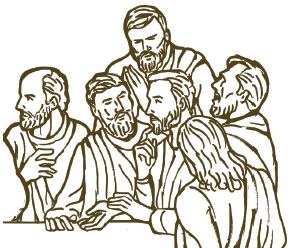
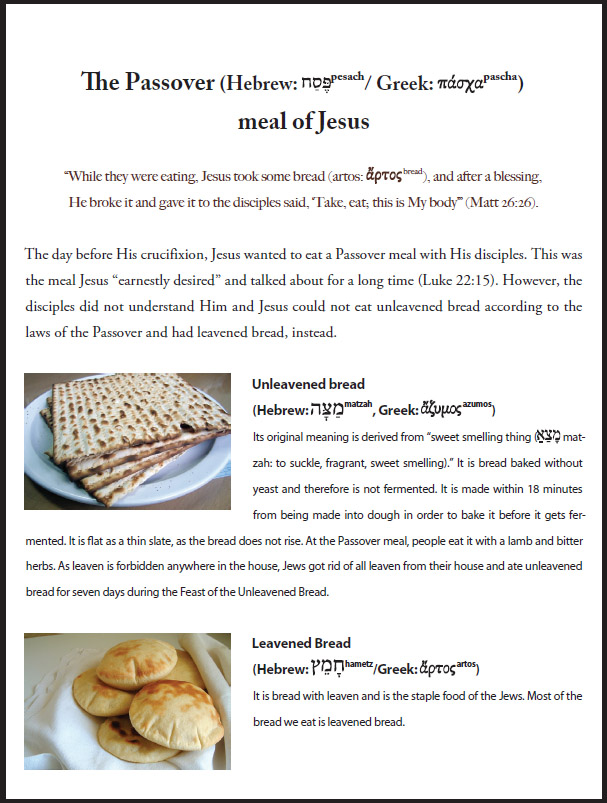
Judas Iscariot was the reason why Jesus could not have the Passover meal
The chief priests, scribes, and elders in the time of Jesus were jealous of Him. They discussed how to kill Jesus and concluded not to kill Him during the feast, because the people liked Jesus and there might be a great riot if they killed Him during the feast (Mark 14:1-2). However, Judas Iscariot, while he was eating the last supper with Jesus, left and went up to them and asked how much they would give him if he turned over Jesus to them (John 13:30).
That was why they decided to kill Jesus earlier than planned. So, all in all, Jesus was not able to eat the Passover meal because of Judas Iscariot. For three years, Judas was loved and fed by Jesus, and received the mysteries of heaven from Jesus, who came to the earth to bear the sin of mankind. Yet he stole offerings (John 12:6), and eventually walked out during the last supper to sell Jesus to the priests for 30 shekels (Matt 26:14-16).
Jesus already knew about their plot to kill Him. Imagine how He must have felt knowing that He would not be able to eat the Passover meal which He so desired. His heart was troubled. He even said “My soul is deeply grieved to the point of death.” He had no one to turn to. Even His own brothers did not believe in Him and pointed their fingers at Him (John 7:4-5). Jesus said, “The foxes have holes and the birds of the air have nests, but the Son of Man has nowhere to lay His head.” How pitiful was He?
He who came as the Passover lamb left without eating the last Passover meal. His disciples brought leavened bread instead of unleavened bread. There was no lamb, either. So Jesus replaced the bread with His flesh and wine with His blood (Luke 22:19-20). How astounding is this?
After all, Jesus could not observe the Passover, although He wanted earnestly to eat the last Passover meal with His disciples before leaving the world. None of His disciples understood His words. How sad is this?

Jesus died on the cross as the Passover lamb
According to the Jewish calendar, in the year Jesus died (AD 29), the Passover (fourteenth day of the first month) fell on the Sabbath day. So they called this day, a “High Day” (John 19:31). When the Passover fell on the Sabbath day, Jews observed it a day earlier. Thus, while normally the Passover lamb was slaughtered between 3 to 6 PM on the fourteenth of the first month, in the year Jesus died, they killed the lamb on the thirteenth day. So Jesus died on the cross on the thirteenth of the first month in AD 29 in Jewish calendar, at the same time the Passover lamb was to be slaughtered (Mark 15:25).
About the time when Jesus was hung on the cross and stood before Pilate, John 19:14 says, “Now it was the day of preparation for the Passover; it was about the sixth hour and he said the Jews, “Behold, your King!” This shows that while the Passover is usually on the fourteenth of the first month, Jesus was crucified on the thirteenth day of the first month, the preparation day. What is noteworthy is that while for Jews the sixth hour is noon, the sixth hour here was in Roman time. In other words, the sixth hour in the text is the same time that we use now, which is 6 AM. Since this was a record about Pilate who was a Roman, John wrote it based on the Roman time. Therefore, Jesus stood before Pilate at 6 AM on the thirteenth day of the first month and was hung on the cross three hours later, at 9 AM.

The day after Jesus was crucified was the Sabbath day. Jews didn’t leave dead bodies on the cross on the Sabbath according to the Law. So the priests went up to Pilate and asked for the body since the next day was the Sabbath day. When they went to take down the bodies, Jesus was already dead. When God established the Passover, He told to Moses not to break the bones of the Passover lamb when slaughtering the lamb (Exod 12:46, Num 9:12). This word was fulfilled as the Roman soldiers did not break Jesus’ legs when He died on the cross (John 19:36, Ps 34:20). However, as for the two robbers on the cross were still alive, Roman soldiers broke their legs to kill them.
Jesus came as the Passover lamb and fulfilled the spiritual Passover. He gave the spiritual Passover meal to the entire mankind by saying, “Eat my flesh and my blood.” The true Passover was fulfilled in Jesus Christ on the cross. The crucifixion of Jesus is the beginning of the divine Passover. Jesus provided all mankind with the true spiritual Passover meal by being hung on the cross.
The new Passover meal reinstated by Jesus
At the last supper, Jesus said that those who did not eat His flesh and drink His blood had nothing to do with Him. This reinstated a new Passover meal. Jesus reinstituted the Passover meal at the large upper room (Matt 26:26-29, Mark 14:22-26, Luke 22:17-20). Many prophets prophesied that the Messiah would come and suffer for the sin of mankind, and just as it had been prophesied, Jesus suffered on the cross and fulfilled the new covenant (Matt 26:53-54, Luke 22:20).
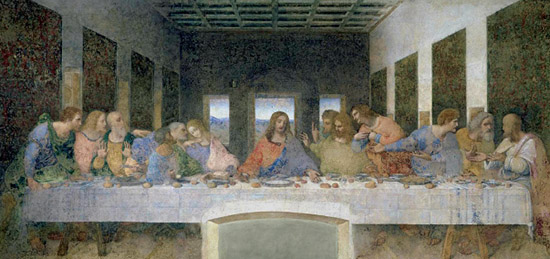
Dear Saints!
We the believers of Jesus are today’s disciples of Jesus Christ. We must know that Jesus’ command is eternal life (John 12:50). We must look upon ourselves to see if we are not like the disciples at the time of Jesus 2,000 years ago. Jesus could not eat the Passover meal even after desiring it so earnestly; as the result, He became the meal Himself. We need to be determined to prepare the Passover meal for Jesus.
Let us pray and decide, “Lord, let me be the place you can lay your head on. Please lay your head on me and rely on me.” Please do not forget until we enter the kingdom of heaven that Jesus wanted to eat the unleavened bread. Let us dedicate ourselves in serving Jesus and our church, the body of Jesus, through reading the Bible and studying the history of redemption. Let us avoid all sins which have leaven and become pure unleavened bread ourselves. Then God will look at our hearts and bless us and our children forever.
Sermon from April 7, 2013, Lord’s Day second service
|
|

